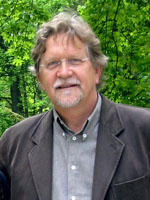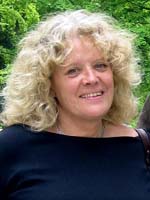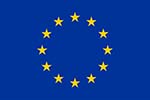Münster Team
The Institut für Mineralogie is involved in training and research in Crystallography, Mineralogy, Geochemistry and Petrology. The main research activity of the Mineralogy group is in Mineral Surface Science: the structure, composition and reactivity of mineral surfaces; dissolution and crystallization processes; the interaction of organic molecules with mineral surfaces and their effect on these processes. The UM team has many years of experience working on the factors which control crystallisation, specifically of barite, and the effect of crystallisation inhibitors and dissolvers. The publication record of the Mineralogy group (~ 120 papers in refereed journals since 2003) demonstrates its research quality and activity.
Role:
Responsible for training and research in nanoscale methods of studying mineral-fluid interactions, with special emphasis on barite crystal growth and the effect of organic and inorganic additives in aqueous solution using Atomic Force Microscopy; coordination of network wide research-specific and complimentary training events.
Key Competences and Facilities:
The Institute maintains an excellent analytical laboratory, which includes two Atomic Force Microscopes, a Raman spectrometer, an X-ray Powder diffractometer, a TEM with EDX Microanalysis and EELS imaging, 3 scanning electron microscopes with EDX, an XRF and an Electron Microprobe. Additionally there is a range of mass spectrometers for high spatial and mass resolution for isotopic and trace element analysis.
Key Persons:
 Team Leader
Team Leader
Prof. Andrew Putnis has over 30 years experience in training and research in mechanisms of fluid-mineral interactions, crystal growth and dissolution, AFM, scanning and transmission electron microscopy. He has written 2 books and has had over 200 papers published in refereed journals. Prof. Putnis will be the main ESR supervisor.
 Dr. Christine Putnis: co-supervisor
Dr. Christine Putnis: co-supervisor
Christine V. Putnis is a research mineralogist in the Institute for Mineralogy, University of Münster, Germany. She is the leader of an atomic force microscopy laboratory and researches and teaches mineral surface reactions at the nanoscale with the aim of understanding mineral dissolution and growth mechanisms related to geochemical and large-scale Earth processes.
Dr. Jasper Berndt- Gerdes
Electron beam and laser ablation analytical facilities manager.
Veronika Rapelius
Aqueous chemistry laboratory manager and trains new users in AA spectrometry and ICP-OES chemical analysis.
Angelika Breit
Manager of X-ray laboratory.
Previous Training Programs and Research:
Partner FP5 RTN QDPSS, FP6 RTN MIN-GRO, FP6 EST MIR. Coordinator FP7 ITN DELTA-MIN. The group has hosted 4 Individual Marie Curie Fellows since 1998. The Team Leader has trained 8 Postdoctoral Fellows and 10 PhD Students in the last 5 years.
